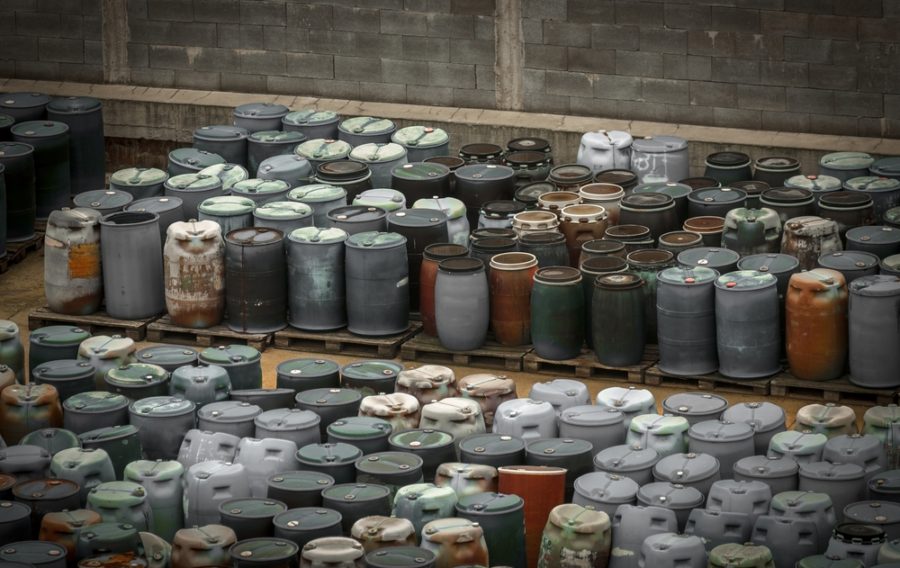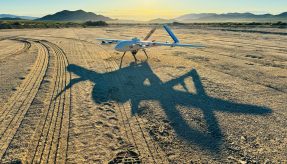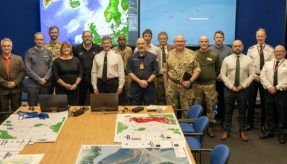
RFA Mounts Bay has assisted in a Danish-led mission to remove chemicals from Libya.
The operation has seen the removal of the last materials, which could be used to manufacture chemical weapons, following the Libyan Government of National Accord request for support from the Organisation for the Prohibition of Chemical Weapons (OPCW) and the international community, in removing the remaining chemicals from Libya and destroying them safely in a third country.
Libya’s chemical weapons stockpile was destroyed under international supervision in 2014. However, a quantity of chemicals which could be made into chemical weapons remained in the country.
Following the Libyan request, the UK took up a major role alongside international partners as part of a wider programme of UK support to the OPCW in ensuring these chemicals are safely destroyed and can’t be obtained by terrorists.
Defence Secretary Michael Fallon said: “RFA Mounts Bay will help ensure chemical weapons precursors do not fall into the hands of extremist groups, including Daesh. This contribution underlines our support to the Libyan Government of National Accord.”
In July this year during his first visit to the UN since taking up the role, the Foreign Secretary voted personally to adopt a UK drafted UN Security Council Resolution supporting the Libyan Government’s operation. In addition the UK conducted intensive diplomatic negotiations including in New York and The Hague to support the Resolution and the wider operation.
Foreign Secretary Boris Johnson said: “The UK, in close cooperation with our international partners, is taking practical and effective action to eliminate chemical weapon risks in Libya.”
The chemicals will be taken to a specialised facility, where they will be destroyed in an environmentally safe and secure way.
Separately, samples of the chemicals have been flown to the UK for analysis by the Defence Science and Technology Laboratory (DSTL) at Porton Down – the MOD’s science arm.
As an OPCW Designated Laboratory DSTL has a capability that is respected worldwide for the quality of its work in the defence and security field.
The UK has experience of working with the Danes when dealing with chemical weapons – both countries played a key role in the removal of Syria’s chemical weapons in 2013 and 2014. The UK worked closely with a range of international partners in dealing with these chemicals from Libya, including the USA and Germany as well as the OPCW.
If you would like to join our community and read more articles like this then please click here
chemical weapons denmark Dstl Foreign Secretary Boris Johnson Libya Michael Fallon MP MOD OPCW RFA Mounts Bay UK








